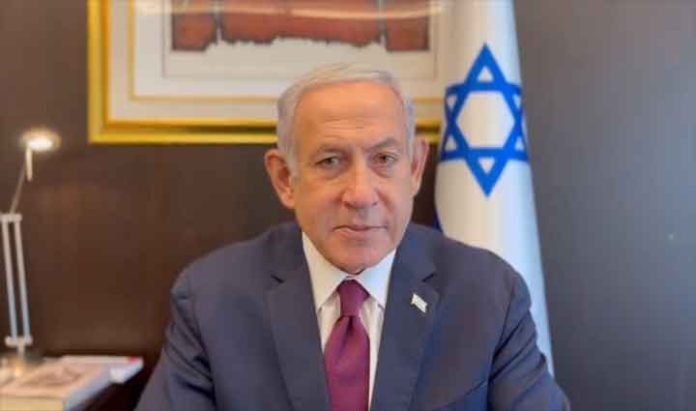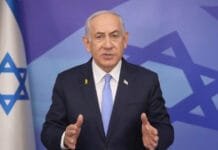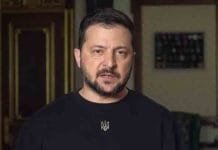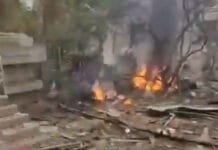Israeli Prime Minister Benjamin Netanyahu issued a stern warning to the Iran-backed Hezbollah group, indicating that recent Israeli military actions have sent a message that should not be ignored. According to a statement from Netanyahu’s office, he emphasized that if Hezbollah has not yet understood the gravity of these strikes, they soon will. The statement followed a series of intense military exchanges between Israel and Hezbollah, further escalating tensions in the region.
Israel’s Recent Attack on Hezbollah in Lebanon: An Unprecedented Strike
Israel’s latest military operation in southern Lebanon, targeting Hezbollah forces, is being described as one of the most severe bombardments in recent history. The airstrikes carried out by Israeli jets aimed at Hezbollah strongholds in southern Lebanon were reportedly the most intense since the ongoing conflict in the area intensified over the past year. The attacks demonstrated Israel’s determination to push back against Hezbollah’s increasing influence and presence along the Israeli-Lebanese border.
This latest confrontation is part of a broader escalation, as Iran-backed Hezbollah continues to claim responsibility for launching rocket attacks into northern Israel. Netanyahu’s remarks seem to be a direct response to these provocations, signaling that Israel’s retaliation could intensify if the militant group fails to heed the warnings.
Netanyahu’s Warning: A Promise of Further Action
Netanyahu’s warning to Hezbollah leaves little room for misinterpretation. In his remarks, Netanyahu stated, “If Hezbollah has not understood the message, I promise you that it will soon understand.” This declaration underscores the seriousness with which Israel views the threat posed by Hezbollah and suggests that additional, potentially more severe, military action could be on the horizon if Hezbollah continues its aggression.
The Israeli Prime Minister’s message appears to be aimed at both Hezbollah and its patrons in Tehran, emphasizing that Israel will not hesitate to act decisively against any group that threatens its security. Hezbollah’s rocket attacks on Israeli military installations have raised alarms in Israel, leading to calls for stronger and more forceful military responses.
The Context of Israel-Hezbollah Hostilities: A Year of Escalation
The latest military exchanges between Israel and Hezbollah are part of a broader escalation that has been brewing for over a year. In recent months, the conflict has intensified, with Israel and Hezbollah engaging in heavy shelling and rocket attacks. Hezbollah has ramped up its military operations, launching numerous rockets into northern Israel, targeting Israeli defense installations, and attempting to disrupt civilian life in border towns.
On the other side, Israel’s defense forces have responded with precision airstrikes and artillery shelling targeting Hezbollah positions in southern Lebanon. These retaliatory actions have been aimed at degrading Hezbollah’s capabilities, preventing further incursions, and sending a clear signal that Israel will not tolerate continued attacks on its territory.
The Strategic Importance of Hezbollah to Iran’s Regional Influence
The role of Hezbollah in this conflict cannot be fully understood without examining its connection to Iran. As a powerful proxy group backed by the Iranian regime, Hezbollah plays a crucial role in Iran’s broader strategy of exerting influence across the Middle East. By maintaining a strong military presence in Lebanon, Iran is able to challenge Israel directly and disrupt the balance of power in the region.
For Israel, confronting Hezbollah is not just about dealing with a local terrorist organization; it is about countering Iran’s expanding influence. Netanyahu’s government views Hezbollah as a direct extension of Iranian power in Lebanon, and Israel’s military strikes are aimed not only at weakening Hezbollah but also at sending a broader message to Iran’s leadership.
Hezbollah’s Growing Capabilities: A Threat to Israeli Security
Over the years, Hezbollah has transformed from a militia group into a highly sophisticated and well-armed military force. With the backing of Iran, Hezbollah has acquired advanced missile systems, drones, and other weapons that pose a significant threat to Israeli security. These capabilities have allowed Hezbollah to launch increasingly frequent and precise attacks on Israeli targets, including military installations and civilian areas.
This growing threat has been a major concern for Israel, prompting the country to take aggressive military actions to disrupt Hezbollah’s operations and degrade its military assets. The recent bombardment of Hezbollah positions in southern Lebanon is part of Israel’s broader strategy to contain the group’s influence and ensure that its military capabilities do not reach a level where they pose an existential threat to the state of Israel.
The International Response: A Call for Restraint
As tensions escalate between Israel and Hezbollah, the international community has called for restraint from both sides. The United Nations and other global organizations have expressed concern about the rising violence and the potential for the conflict to spill over into a broader regional war. However, Israel’s leadership has made it clear that it will not back down in the face of Hezbollah’s aggression.
Netanyahu’s government has stressed that Israel’s right to defend itself is non-negotiable, and any attempts by Hezbollah to challenge Israeli sovereignty will be met with a strong and immediate response. While the international community continues to push for diplomatic solutions, the situation on the ground remains highly volatile, with both sides preparing for the possibility of further military confrontations.
Looking Ahead: The Future of Israel-Hezbollah Relations
The current conflict between Israel and Hezbollah is far from over. Netanyahu’s latest warning indicates that Israel is prepared to escalate its military actions if Hezbollah does not cease its rocket attacks and other provocations. As the situation continues to evolve, it is clear that Israel-Hezbollah relations are at a critical juncture, with the potential for further violence looming large.
In the coming weeks and months, it will be crucial to monitor how both Israel and Hezbollah respond to the ongoing tensions. For Israel, the priority remains protecting its citizens and ensuring that Hezbollah does not gain a foothold along its northern border. For Hezbollah, the challenge will be balancing its military ambitions with the growing pressure from both Israel and the international community to de-escalate the conflict.















